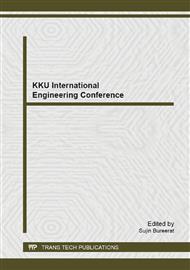p.1335
p.1342
p.1348
p.1353
p.1360
p.1365
p.1370
p.1375
p.1382
Classification of Tourism Web with Modified Naïve Bayes Algorithm
Abstract:
In this paper we report results of a research aimed at classification Web contents on tourism with a modified Naïve Bayes algorithm. We used Web pages relating touristic information about Thailand. An appropriate light-weight tourism ontology with related terms was used to improve the results, which were categorized into six categories (attractions, accommodation, dining, local product markets, One Tambon One Product (OTOP) shops, and events). The Naïve Bayes algorithm generates results for each category, but Web pages can contain diverse information about tourism spanning over groups. The initial Web classification system could not categorize 130 sites (27.40%) out of 475 tested pages, because those Web pages contain words from more than one category. Therefore, we modified the Naïve Bayes algorithm to improve the efficiency of Web classification, which was then tested with the help of F-Measure: the results show 100% for precision, 97.39% for recall, and 98.58% for F-measure.
Info:
Periodical:
Pages:
1360-1364
Citation:
Online since:
May 2014
Authors:
Price:
Сopyright:
© 2014 Trans Tech Publications Ltd. All Rights Reserved
Share:
Citation:


